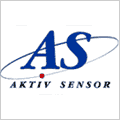GGI: Congratulations on the sale
of your company.
Harmut Bloch: Thank you.
GGI: Why did you sell your company?
HB: I have reached retirement age and I do not have children or close relatives that would be interested in running the company.
GGI: In finding a buyer, what were your most important selection criteria?
HB: It was clear to me that only a good strategic buyer would be able to take over this company and successfully run and grow it. Secondly, of course, the price also was very important to me.
GGI: Do you think your decision to sell to EPCOS with the help of GGI has met both criteria?
HB: Yes, absolutely.
GGI: When did you first start thinking about selling your company?
HB: This is a long story and goes back to the year 2001 when we were about to merge with another sensor company and – as a result of 9/11 – the banks that were supposed to help finance the deal pulled the rug from underneath us. Over the next few years, we were approached by numerous strategic investors both German and international – some of them very famous names – but the “sales process” was not handled in a professional manner and we did not get offers that did justice to the value of our company.
GGI: Did you – as a result – ask an M&A firm to assist you in the process?
HB: Yes, I did. I asked a local German outfit to help us identify potential buyers. However, after more than a year, we did not have any worthwhile discussions going on and I cancelled the mandate.
GGI: So you turned to GGI?
HB: Yes, I have known GGI for years as an M&A firm with a focus on sensors. GGI started the sales process in the summer of 2006 and signed the agreement with EPCOS, the buyer, in January 2007.
GGI: What does Aktiv Sensors do?
HB: Aktiv Sensors develops, manufactures and sells piezo-resistive pressure sensors. It makes sensor elements, pressure sensors and pressure transducers. It is one of the very few companies in Europe – at least to my knowledge – that is fully integrated.
GGI: What does that mean?
HB: It means that we control the entire process – from the wafer foundry and packaging to sensor elements and sensors.
GGI: Doesn’t the foundry make the company inflexible and burden it with a lot of overhead costs?
HB: On the contrary!
GGI: How so?
HB: Being in control of the entire process lets us be more responsive to the customers, to their custom-specific requirements. Plus, it gives us an edge in product development.
GGI: What is the advantage of piezo-resistive technology?
HB: Piezo-resistive sensors offer many technological features including superior linearity, high natural frequency, ruggedness and elasticity.
GGI: Who are your main competitors?
HB: We do not have many competitors that are as fully integrated as we are. The fact that we make our sensor elements ourselves gives us a high degree of flexibility – we do not need to source from other parties – we are not dependent on them. Thus, we can also be more responsive and faster.
The only manufacturer with a comparable range of products and competitive
prices seems to be Fujikura. Some competitors even buy the pressure elements
from Aktiv Sensor – this industry environment is more conducive to cooperation
than to fierce competition: the market is growing rapidly, and there is room for
more than one or two manufacturers
GGI: But still – you must have competitors for the various products?
HB: Of course. First Sensor Technology GmbH for example makes piezo-resistive sensor elements. As far as sensors and transducers go, it would depend on the applications. Worldwide, of course, Motorola would be a competitor, similarly Sensata (formerly TI).
GGI: What are the growth projections for this market?
HB: It is estimated that the pressure sensor market grows at a 12% clip.
GGI: What are the main markets for your company’s products?
HB: Potential markets and applications are boundless. In our business we have been focusing on two major market segments: automotive, where we supply sensor elements to a large 2nd tier company, and the medical industry.
GGI: What do your products do?
HB: Just a few examples. Our products measure the pressure in automotive air-conditioning systems, airbags, tire-pressure systems, fluid level indication, etc.
In the medical field they are being used for blood pressure measurement, respiration equipment, therapeutic applications, etc. In other words, these applications are critical for the health, safety or comfort of human beings.
GGI: Are there plans to supply sensors to the automotive industry?
HB: Yes, we are in the throes of being certified by an automotive OEM.
GGI: What are your plans for the future?
HB: Well, I will pursue my hobbies and I will continue to consult. I will open a small office in Berlin to help companies in the electronics and sensors fields.
GGI: Mr. Bloch, we wish you continued success and lots of time for your hobbies!
HB: Thank you.

